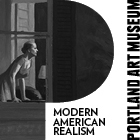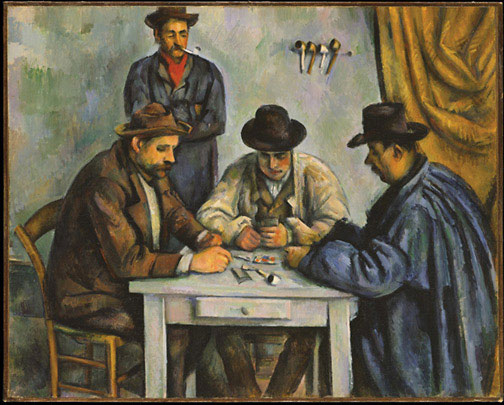
|
||
|
Portland art blog + news + exhibition reviews + galleries + contemporary northwest art
|
||
Richard Shiff Lecture
Here are Shiff's own words, which points to the real reason Cezanne is such a pivotal art historical figure, "Perhaps volatile feeling has the final say, not structured reason. Life is manifold, messy, inherently anti-ideological. This is the truth that at least some of Cezanne's early admirers believed his art confirmed. It made them tolerant of the singular opacity-or the utter banality-of images like the Card Players, where marks and their colours attracted more interest than the theme." ...and Reed's press release states, "Art historians usually classify images like Cezanne's Card Players as genre pictures: views of daily life that may reveal attitudes toward a class of society or a set of cultural practices. Can such pictures be abstractions? And if so, abstractions of what? Shiff's lecture investigates the fact that Cezanne's earliest viewers evaluated his Card Players as if they were abstractions, and by this interpretive route, the paintings gained a special social significance."
Posted by Jeff Jahn on February 06, 2012 at 10:24 | Comments (0) Comments Post a comment Thanks for signing in, . Now you can comment. (sign out)
(If you haven't left a comment here before, you may need to be approved by
the site owner before your comment will appear. Until then, it won't appear
on the entry. Thanks for waiting.)
|
| s p o n s o r s |
 |
 |
 |
 |
 |
 |
 |
 |
 |
 |
 |
 |
 |
 |
 |
 |

|
Site Design: Jennifer Armbrust | • | Site Development: Philippe Blanc & Katherine Bovee | |


